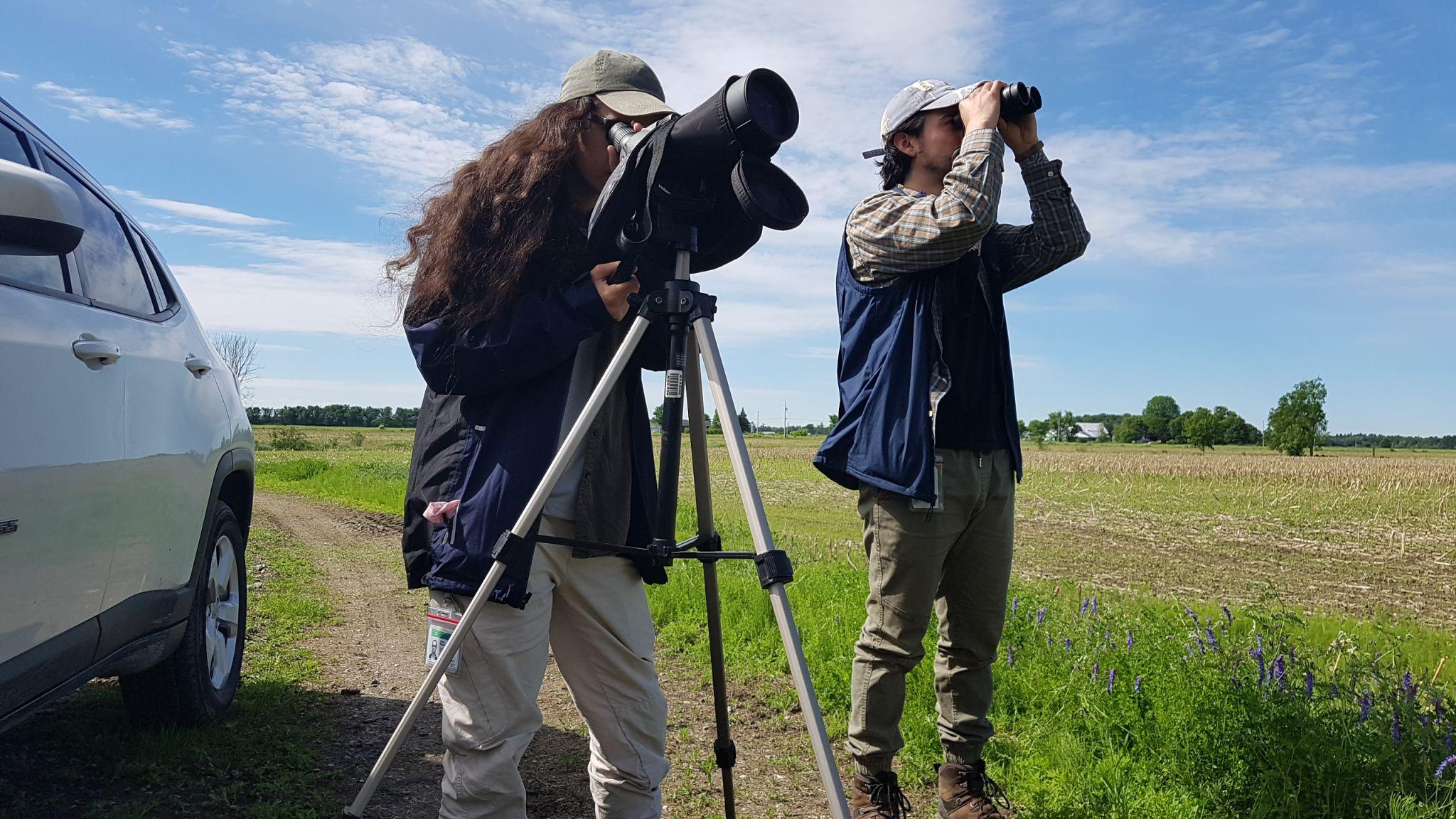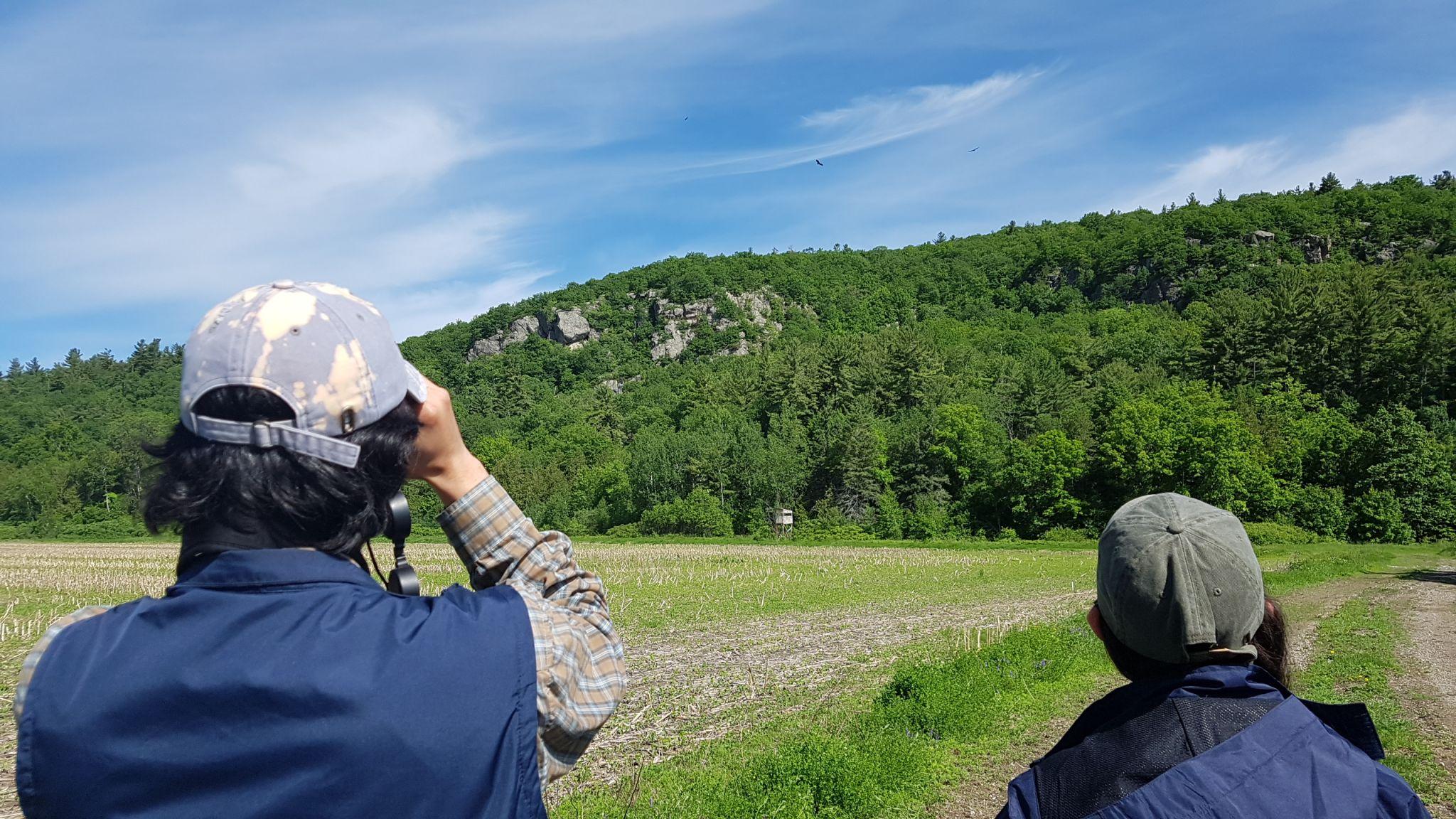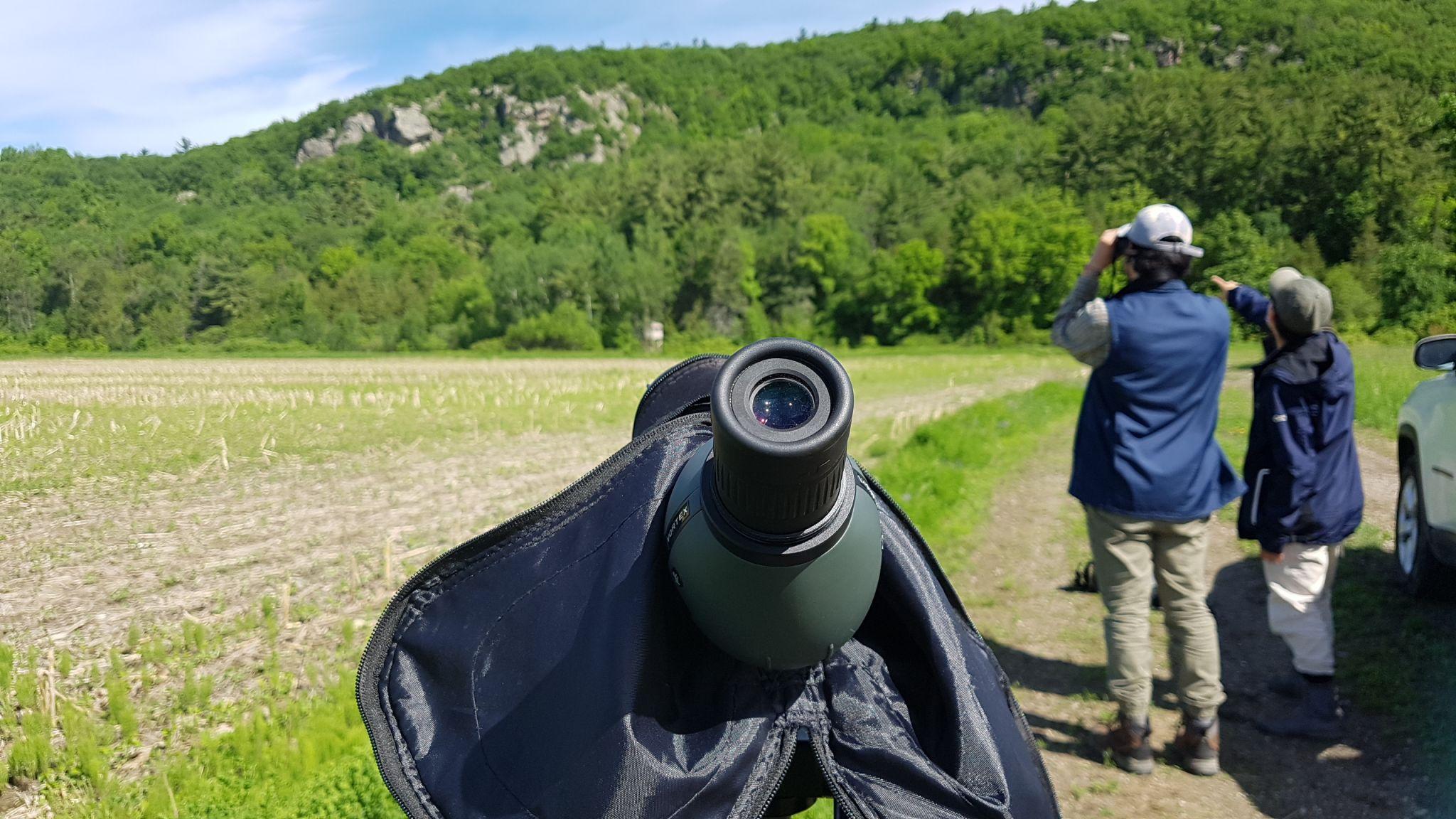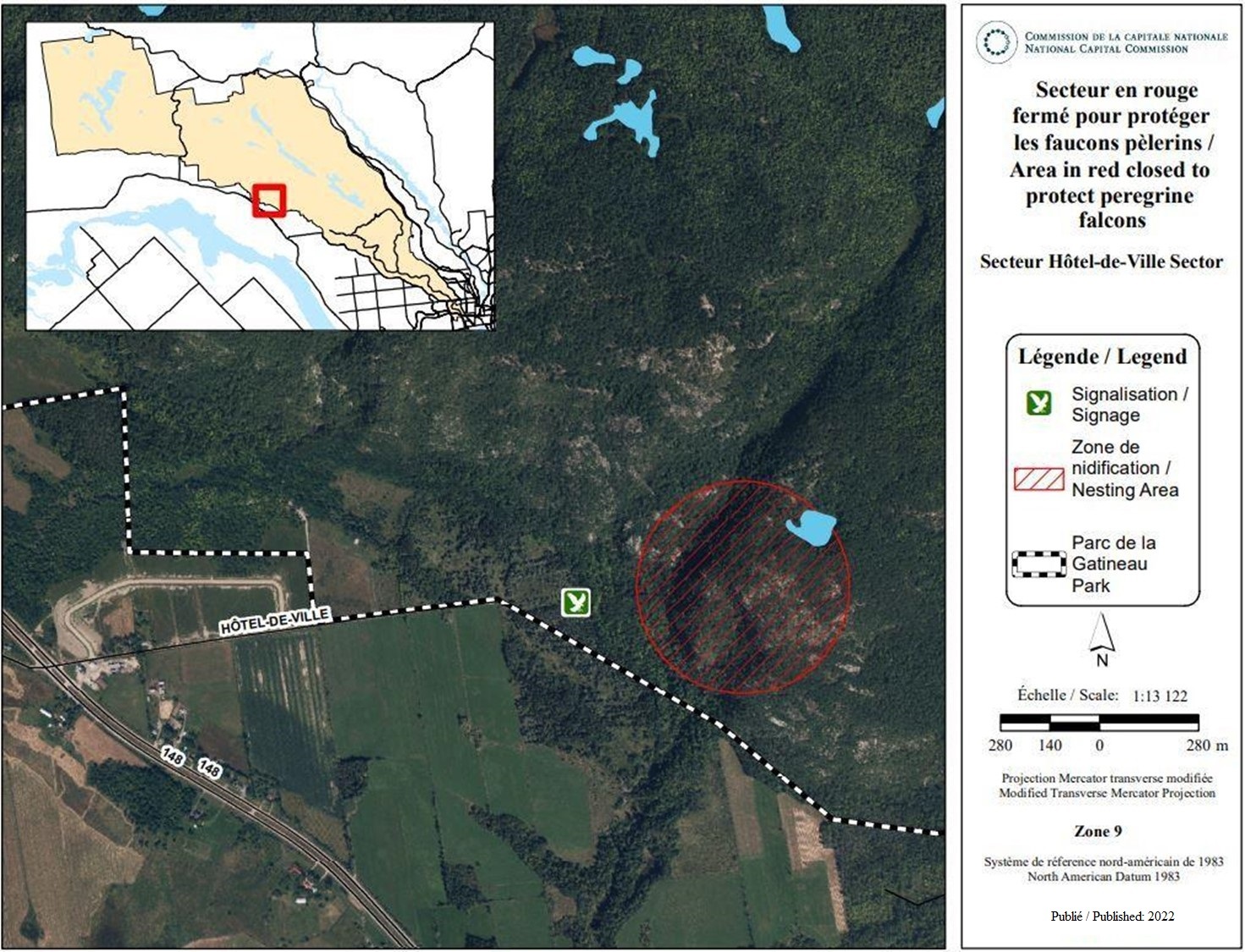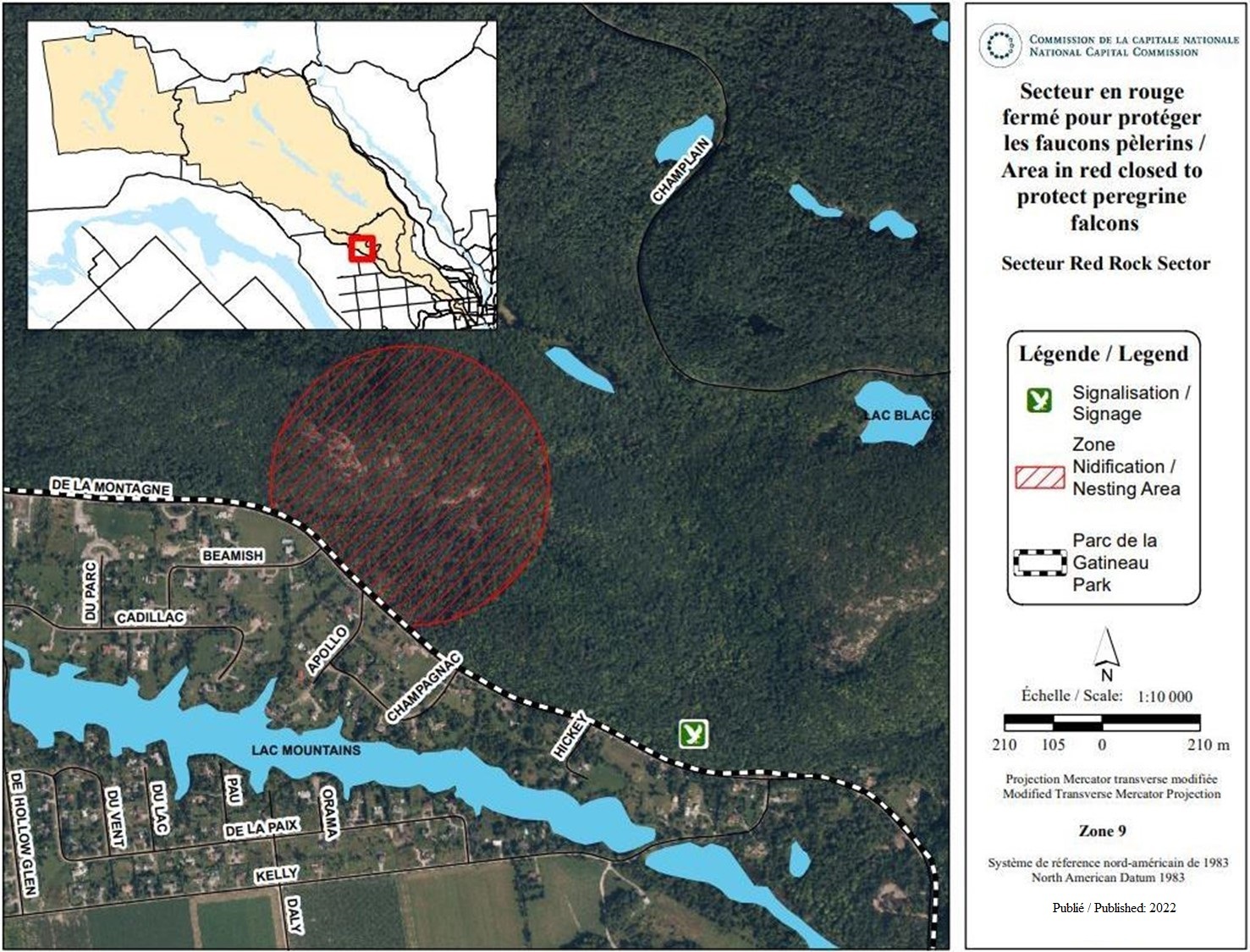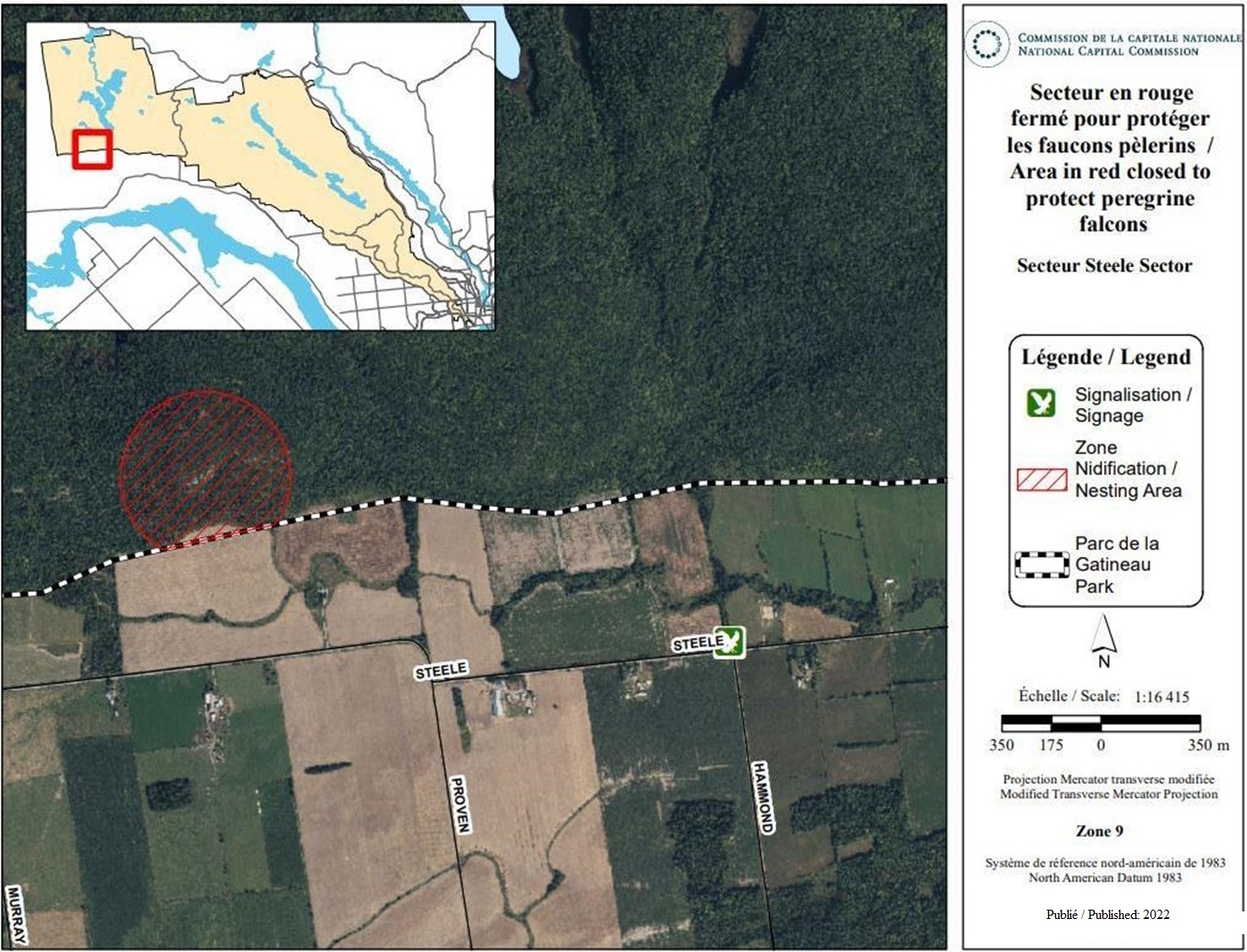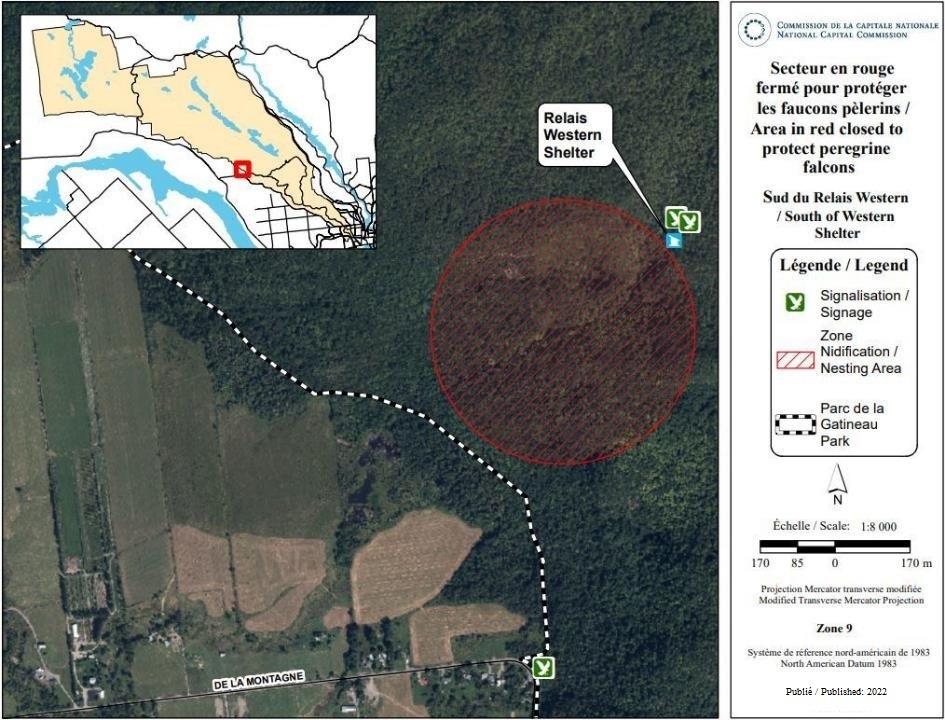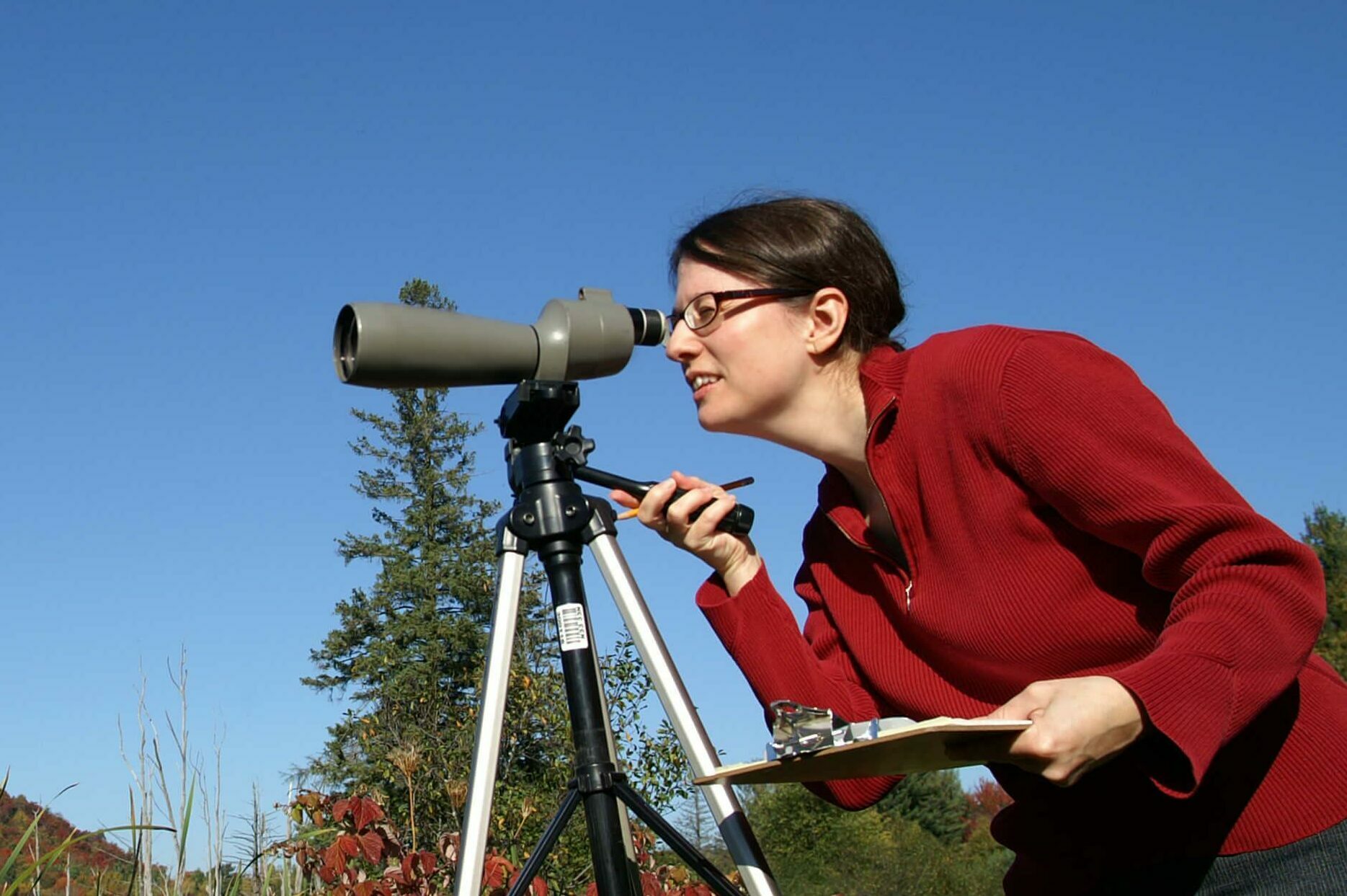
Isabelle Beaudoin-Roy
Biologist
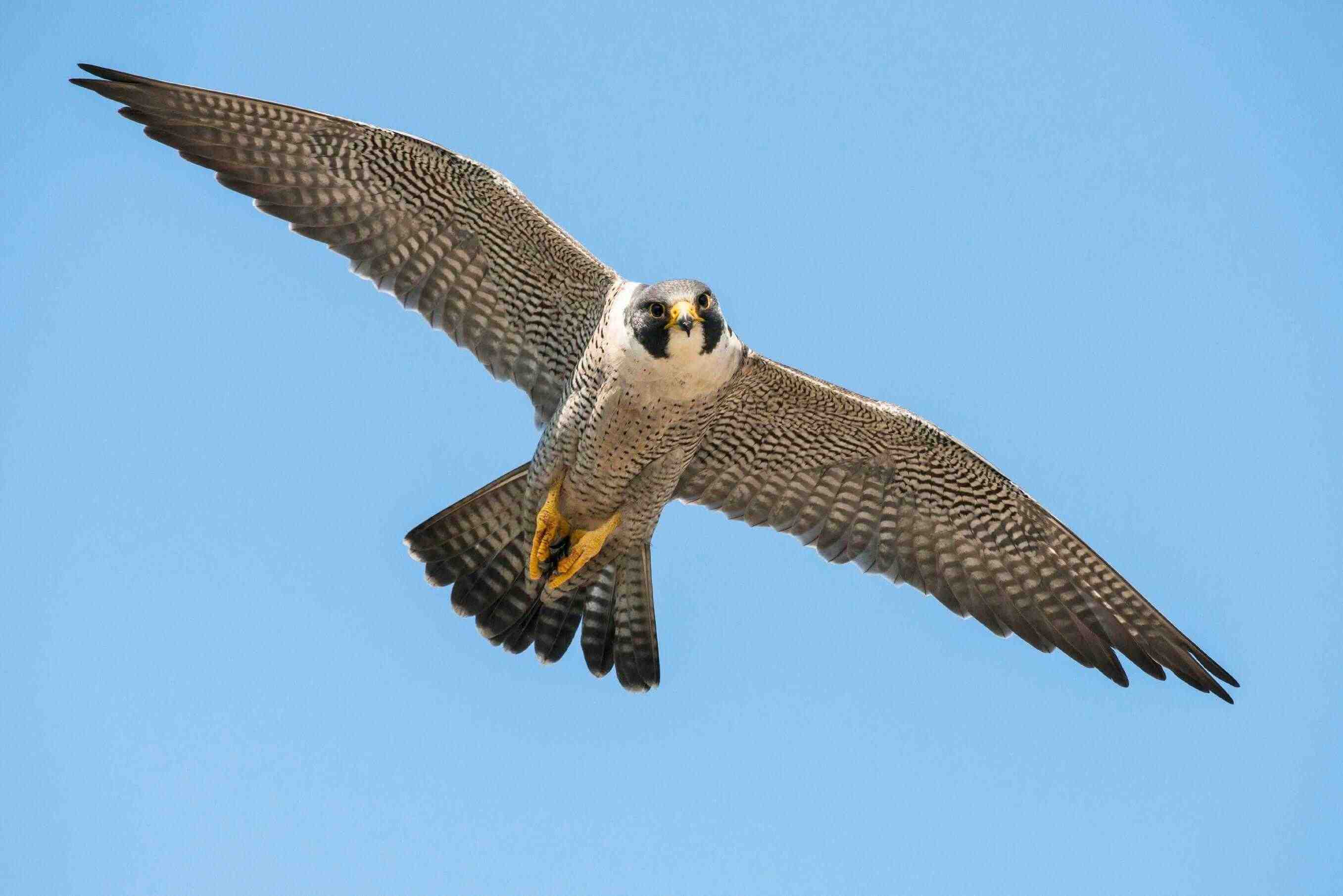
Gatineau Park is home to the world’s fastest bird, the peregrine falcon. This species at risk has had difficult years, but — thanks to tougher laws and protective action — it is now making a remarkable comeback.
In April 2010, peregrine falcons were spotted in Gatineau Park for the first time in many years. Since then, my fellow biologists and I have been monitoring them and doing everything we can to make sure they return, year after year.
Read on to learn more about why we must protect peregrine falcons and how you can help.
The fascinating peregrine falcon
Peregrine falcons fly south for the winter and fly back in the spring to breed and nest. They often nest on cliffs, like the Eardley Escarpment, where they perch and feed on smaller birds.
Peregrine falcons will often return to the same nesting site, year after year. That’s especially true if they have been successful in raising their young there.
These birds of prey may be at the top of their food chain, but they are easily disturbed by humans. This can cause problems, including
- agitated parents who accidentally cause their eggs to fall out of the nest
- frightened chicks who try to fly too soon and die as a result of falling
Peregrine falcons are loyal to their nesting sites, but repeated disturbances may cause them to abandon the site altogether. That’s why we must protect the peace and quiet that peregrine falcons need to raise their young.
Areas closed in 2024
Throughout the summer, student biologists use powerful binoculars and telescopes to observe and document the presence of peregrine falcons and potential nests on the Eardley Escarpment.
To protect peregrine falcons and their nests, we sometimes need to close off areas of the Park. These closures typically last for the duration of the nesting season, which extends from April to August. These measures aim to minimize disturbances and are similar to those used in many other protected natural areas.
The Park is home to many species sensitive to human disturbance, including the peregrine falcon. Helping us protect them is easy:
- Respect signage, including dog regulations.
- Stay out of closed areas.
- Stay on designated trails at all times.
- Remember that paragliding and hang gliding are not permitted in Gatineau Park.
Here are the areas that will be closed in 2024. We may close other sectors during the season, depending on the results of our monitoring.
Hope after difficult years for the peregrine falcon
The peregrine falcon is listed as a vulnerable species in the province of Quebec. In the 1950s and 1960s, the widespread use of the pesticide DDT caused a radical decline in the peregrine falcon populations.
The presence of this pesticide in their food caused them to lay thin-shell eggs, which resulted in higher mortality and reduced reproductive success. This impacted the species until the 1970s, when Canada and the United States banned the use of the pesticide.
Now, after surviving through many difficult years, peregrine falcon populations are growing — which is a big win for nature! I feel very fortunate to have a front-row seat to witness this.
I look forward to the return of this majestic bird species year after year — and I hope you do too!
